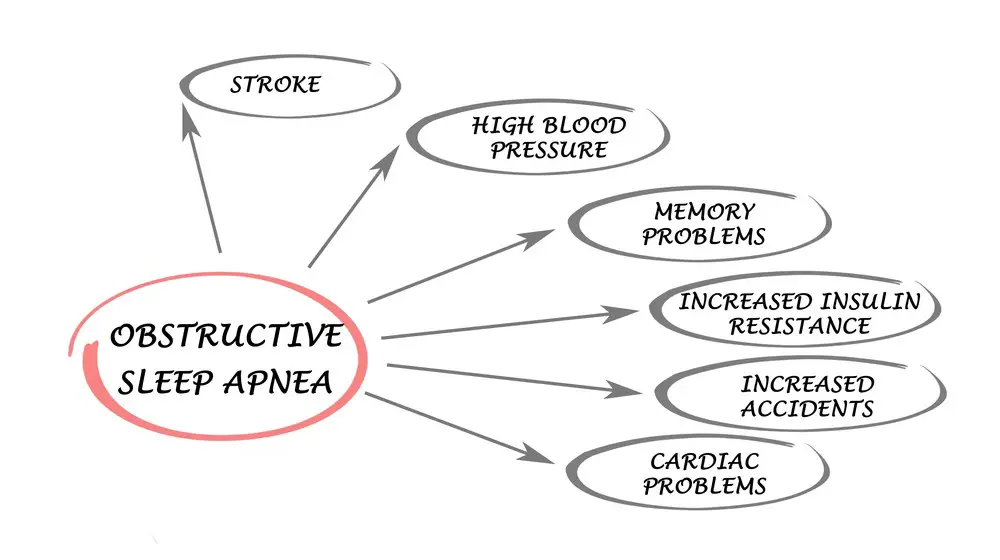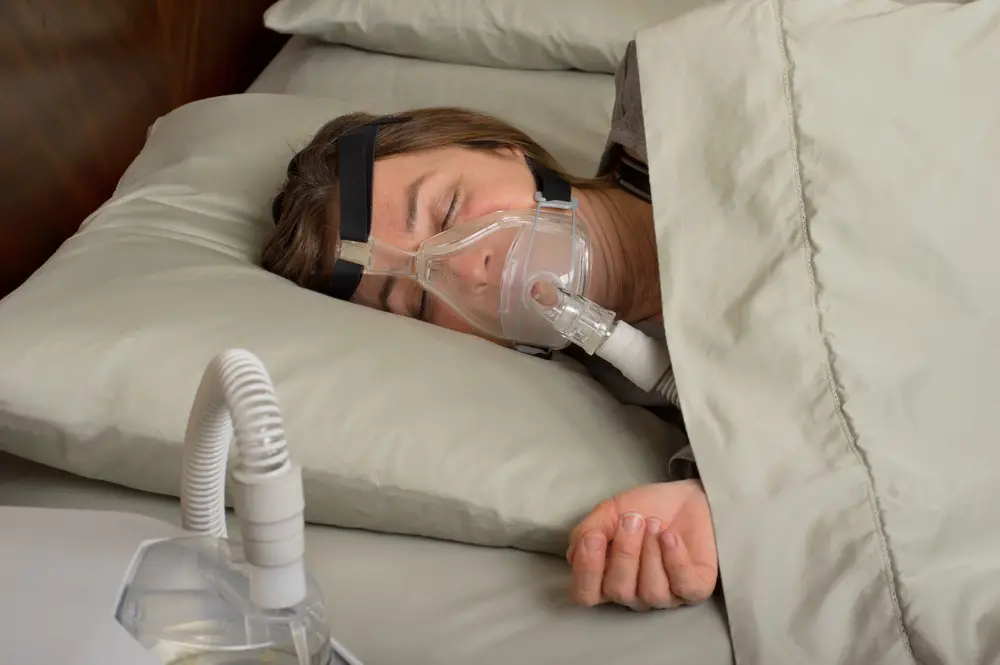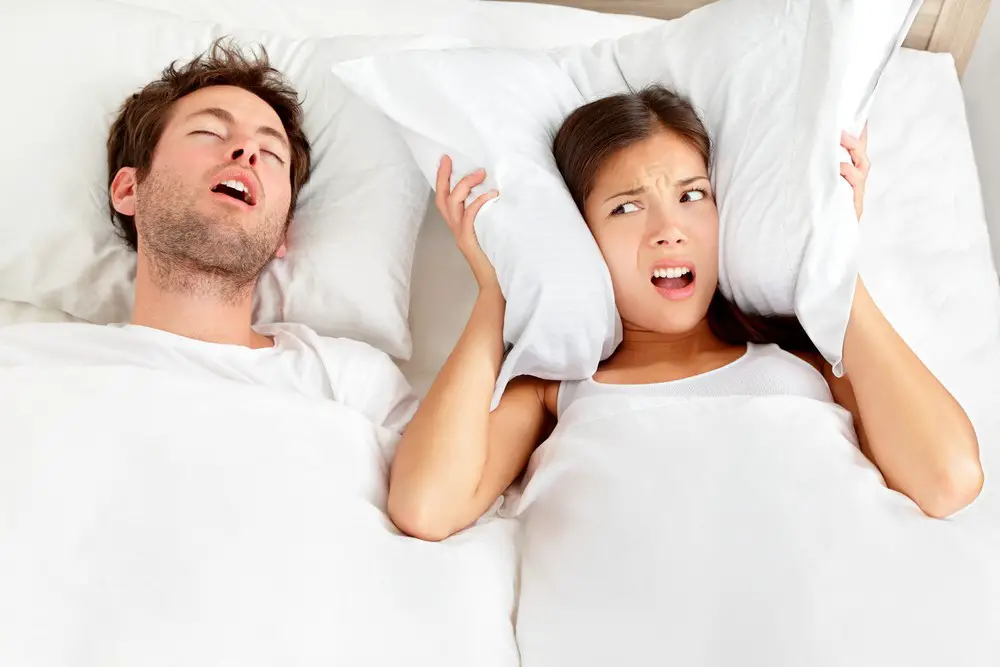As a BetterHelp affiliate, we receive compensation from BetterHelp if you purchase products or services through the links provided
Excessive daytime sleepiness can be debilitating and make day-to-day life seem so much harder. Some of the most commonly diagnosed sleep disorders are sleep apnea and narcolepsy. While sleep apnea and narcolepsy can make you exhausted, they aren’t all the same regarding how exactly they affect your sleep.
Narcolepsy is a neurological disorder that can make sufferers unbearably tired at any moment because of brain dysfunction that causes the sleep and wake cycles to become confused. Sleep apnea can be a physical obstruction in the mouth or throat, a neurological problem where the brain isn’t being told to take in the air during sleep, or a combination of both.
This article will detail how narcolepsy and sleep apnea differ, including symptoms and treatments.
Sleep Apnea and Narcolepsy – How We’ll Compare Them
To tell the difference between sleep apnea and narcolepsy, it’s essential to be educated on both disorders and what makes them unique from one another. To do this, we’ll compare these 3 factors:
- Causes
- Symptoms
- Treatment
To properly compare the two, it’s also important to note that there are 3 different types of sleep apnea. When comparing sleep apnea to narcolepsy, it’s essential to be familiar with all 3.
- Obstructive sleep apnea: The most common form of sleep apnea, this obstructive form occurs when there is something physically blocking the airway. The blockage is almost always tissue like the tonsils, uvula, and soft palate.
- Central sleep apnea: This apnea occurs when the brain cannot signal the brain that it needs to breathe during the sleep cycle.
- Complex sleep apnea is a combination of both obstructive and central sleep apnea.
Causes of Sleep Apnea and Narcolepsy
As with any disease or chronic sleep disorder, it’s essential to narrow down the root causes of the problem so treatment can be accurate. Sleep apnea and narcolepsy don’t have exact causes, so let’s examine the differences. Causes of Sleep Apnea
Sleep apnea has two primary causes: obstructions in the airway or neurological dysfunction. Obstructive sleep apnea is caused by something blocking the mouth or throat and making breathing hard. Usually, it’s excess tissue in the airway causing the apnea.
This excess tissue can be one or a combination of many things. Just a few of the things that can block the airway are:
- Soft palate
- Uvula
- Tonsils
On the other hand, central sleep apnea is caused by the brain not communicating that the sufferer needs to breathe while sleeping and not by a blockage.
Unlike narcolepsy, sleep apnea can be eliminated if the correct steps are taken. Some individuals will suffer from the condition all their lives, but many people with sleep apnea have been able to cure their apnea with weight loss and even surgery.
Causes of Narcolepsy

Narcolepsy, being a neurological disorder, can have many causes. Family history of narcolepsy can be a contributing factor, as well as strokes, brain injury, and anything else that can cause damage to the brain.
These factors can cause the brain to not produce the correct chemicals for a healthy sleep cycle, which leads to narcolepsy in some individuals.
Narcolepsy is still a bit mysterious to the scientific community. Still, in recent years it’s been determined that one of the most significant factors in the disorder is the lack of a protein called hypocretin, produced by neurons in the brain.
Narcolepsy sufferers lack many of these neurons, and because hypocretin is used to regulate the sleep cycle, this becomes detrimental to the sleep health of the individual. There is reason to think narcolepsy might become more common after infections, but no definitive connection has yet been made.
How They Compare
Since sleep apnea involves trouble breathing during sleep, it makes sense that the causes of this disease would be related to the ability to breathe, whether the brain is involved or not. On the other hand, narcolepsy is always neurological and seldom has a physical cause, like sleep apnea.
Interestingly, injury to the brain or head can cause an onset of both of these disorders because of the role the brain itself plays in regulating when to sleep, narcolepsy, and breathing while sleeping, in the case of sleep apnea.
Symptoms of Sleep Apnea and Narcolepsy
These sleep disorders cause extreme fatigue and excessive daytime sleepiness, but many of their other symptoms are different and unrelated to each other.
Symptoms of Sleep Apnea
Symptoms of sleep apnea include:
- Loud snoring
- Gasping for breath while sleeping
- Pauses or periods without breathing
- Excessive daytime sleepiness
- Frequently waking up/broken sleep cycle
Symptoms of Narcolepsy
Some symptoms are narcolepsy are:
- Falling asleep or becoming excessively tired in the middle of an activity
- Excessive daytime sleepiness
- Broken sleep cycle
- Cataplexy a brief moment of paralysis or loss of muscle tone
- Sleep paralysis, also known as night terrors
- Automatic behaviors that continue during brief periods of daytime sleep
- Hallucinations
How They Compare
Both sleep apnea and narcolepsy cause intense sleepiness throughout the daytime and can disrupt normal nighttime sleep. Other than that, their symptoms don’t overlap as much as you might think. Narcolepsy symptoms seem more severe, but the poor sleep quality from sleep apnea can also make things like driving dangerous.
Treatment of Sleep Apnea and Narcolepsy
There are treatments for sleep apnea and narcolepsy, but they aren’t the same treatment. Complex, central and obstructive sleep apnea treatment will focus more on nighttime breathing, while narcolepsy treatment will aim to fix neurological issues.

Treatment of Sleep Apnea
Sleep apnea will usually be treated first with lifestyle changes. Excess tissue and pressure in the airway can be caused by obesity and general unwellness. Doctors recommend weight loss, a healthy diet, and regular exercise to correct this sleep disorder.
These changes can be paired with the second line of treatment, the CPAP machine. CPAP stands for continuous positive airway pressure, and these machines will use this air pressure to keep airways open at night.
If someone is dealing with obstructive sleep apnea that other methods can’t fix, surgery is also an option to remove some of the excess tissue blocking the mouth or throat. Sleep medicine isn’t a recommended treatment method without a doctor being involved.

Treatment of Narcolepsy
Since narcolepsy isn’t an ailment caused by physical obstruction, it can’t be fixed with machines or surgery the way that sleep apnea can. Instead, controlling narcolepsy relies on the sufferer getting good quality sleep and taking naps during the day when they begin to feel exhausted.
Daily exercise can also be beneficial, and avoid things like caffeine and alcohol. Alcohol can make falling asleep during the day more likely, while caffeine can make it challenging to get a good night’s sleep.
For severe narcolepsy, medications like modafinil and amphetamines can help keep the sufferer awake during the day, and over-the-counter or prescription sleep medicine can be used for disturbed REM sleep at night.
How They Compare
Where sleep apnea can be managed by physical means and even cured in some cases, narcolepsy can only be managed with treatment. Both disorders benefit from good lifestyle choices like proper sleep, healthy diets, and regular exercise.
If a more drastic type of treatment, like a CPAP machine or prescription, is needed, always contact your doctor first.
Breakdown Between Sleep Apnea and Narcolepsy
Now that we know a little bit more about the differences between these top 2 sleeping disorders, it’s easier to see why they may be confused for one another. When you become familiar with sleep apnea and narcolepsy, though, the differences become apparent.
Since sleep apnea is often caused by physical obstruction, it is often easier to treat than narcolepsy.
On the other hand, narcolepsy doesn’t come with the added risk of not being able to breathe at night, which is why some might consider it less problematic than sleep apnea.
In the table below, we have listed both disorders’ causes, symptoms, and treatments so you can compare them side-by-side.
| Sleep Apnea | Narcolepsy | |
| Causes | Obesity, excess tissue causes airway obstruction, swollen tonsils, neurological dysfunction regarding nighttime breathing | Failure in the brain to produce the correct chemicals for a normal nighttime sleep cycle |
| Symptoms | Loud snoring, broken sleep, daytime sleepiness, gasping for breath during sleep, periods with no breathing | Sudden onset of sleepiness, cataplexy, sleep paralysis, hallucinations, broken sleep cycle, automatic actions |
| Treatment | Weight loss, exercise, CPAP machine, surgery | Quality sleep, napping, avoiding caffeine and alcohol, medications |
Final Thoughts
Comparing sleep apnea and narcolepsy can be difficult, mainly because the most significant symptom of both is sleepiness. Being exhausted makes it hard to live, work, and even function in our everyday lives, so being able to identify a sleep disorder can be a big step in getting your life back on track.
The most significant difference between these 2 is that, most likely, sleep apnea is caused by some sort of obstruction in the airway that makes it impossible to breathe, causing snoring and gasping during sleep. This obstruction is usually the tonsils, soft palate, uvula, or excess tissue in the throat.
Narcolepsy is almost neurological and occurs when the chemical processes in the brain are dysfunctional and make you intensely tired at the wrong moments. It can also be combined with a symptom called cataplexy, which causes brief paralysis.
- Breaking the Silence: Why Men’s Mental Health Matters More Than Ever - April 15, 2025
- How to Transform a Home’s Patio Space into a Relaxing Space - March 23, 2025
- 5 Strategies to Use a Cell Phone to Help Manage Your Stress - March 23, 2025
This site contains affiliate links to products. We will receive a commission for purchases made through these links.



